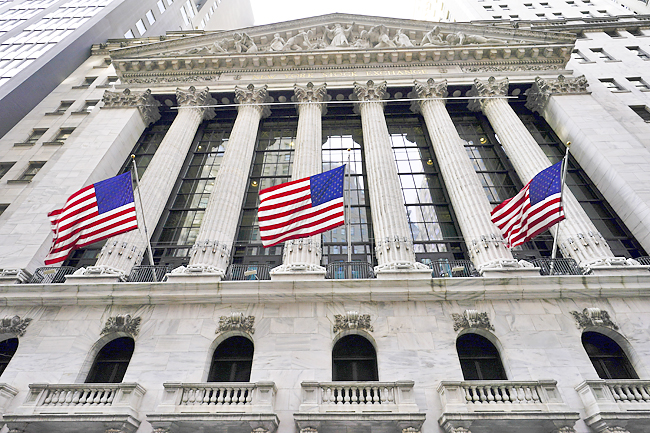AP – World shares were mostly lower yesterday following a retreat on Wall Street as leaders prepared to meet in Europe to discuss the Ukraine crisis.
United States (US) President Joe Biden was to attend the meetings in Brussels, where sanctions and the Russian oil embargo will likely top the agendas.
Shares rose in Moscow after Russia’s exchange resumed trading under heavy restrictions nearly one month after shares plunged and the exchange was shut down following the invasion of Ukraine.
Limits are in place to prevent the kind of massive sell-off that occurred in anticipation of crushing financial and economic sanctions from Western nations. Foreign shareholders will be unable to sell shares – a restriction Russia imposed to counter Western sanctions against its financial system and the weakening ruble.
Trading was allowed in 33 of the 50 companies that are part of the country’s benchmark MOEX index, including air carrier Aeroflot, state-owned gas producer Gazprom and the oil company Rosneft, according to a central bank announcement about the re-opening.
The index was up 8.9 per cent by mid-morning Moscow time.
Investors were watching to see the outcome of the meetings of NATO and a European leaders summit.

Germany’s DAX lost 1.3 per cent to 14,283.65. In Paris the CAC 40 declined 1.2 per cent to 6,581.43. Britain’s FTSE 100 lost 0.2 per cent to 7,460.63. The future for the S&P 500 was 0.4 per cent higher while the contract for the Dow industrials rose 0.3 per cent.
In Asia, Tokyo’s Nikkei 25 rose 0.3 per cent to 28,110.39. In Seoul, the Kospi declined 0.5 per cent to 2,729.66, while the Shanghai Composite index gave up 0.6 per cent to 3,250.26.
The Hang Seng in Hong Kong sank one per cent to 21,929.68. In Australia, the S&P/ASX 200 edged 0.1 per cent higher, to 7,387.10.
On Wednesday, the S&P 500 fell 1.2 per cent, with more than 80 per cent of the stocks in the benchmark index closing lower. The Dow slid 1.3 per cent. Both indexes are now on pace for a weekly loss.
The Nasdaq fell 1.3 per cent. Smaller company stocks also lost ground. The Russell 2000 fell 1.7 per cent.
Energy stocks rose as crude oil prices climbed more than five per cent. Hess rose 4.6 per cent for the biggest gain in the S&P 500.
The attack on Ukraine has pushed already surging energy and other commodity prices even higher.
“Pressure points are building again with oil back on the boil, resulting in stagflation weighing on sentiment again,” Stephen Innes of SPI Asset Management said in a commentary.
US benchmark crude oil lost USD1.09 to USD113.84 per barrel in electronic trading on the New York Mercantile Exchange. It rose USD5.66 to settle at USD114.93 per barrel on Wednesday.
A barrel of Brent crude, the international standard, gained 41 cents to USD118.16 per barrel. Prices are up more than 50 per cent in 2022 so far, raising concerns about the impact on a wide range of consumer goods and consumer spending overall.
Many of the higher costs incurred by businesses have been passed on to consumers and higher prices for food, clothing and other goods could lead them to cut spending, resulting in slower economic growth.
Central banks have been reacting by raising interest rates to try and counter the impact from inflation.
Bond yields have been rising overall as the market prepares for higher interest rates, but they eased back on Wednesday. The yield on the 10-year Treasury fell to 2.33 per cent from 2.37 per cent from Tuesday.





